The rubric I’ll be using to grade your participation is available here. The most effective comments in this kind of forum are concise, clear, and supported. Instead of responding to every conversation question in one comment, try to make shorter, separate comments that allow other people to digest and respond to your ideas.
Online discussion #4 is open for comments from Tuesday, September 19 until the end of Monday, September 125. Make sure that you’ve emailed your WordPress user name to music.drjones@gmail.com so that I can give you credit for participating.
Music has the power to convey messages—through its words, because of the context where it’s played, because of who’s playing it, and because of our associations with similar musical sounds. (The study of how music is able to convey messages, imply ideas, or communicate subtleties to nuanced listeners is called semiotics.) This week, we’re turning from religion to a very different human experience and thinking about how the context of war is enhanced by music, inspires music, and allows music to take on new meaning. The focus will be on 20th– and 21st-century wars (World War II, Vietnam, Iraq/Afghanistan post-September 11th), but we’ll listen to four different areas of music in wartime: nationalism, the human toll of war, music as protest, and music as war.
I. Nationalism and patriotism: Music to unite the people
Nationalism (celebrating one’s nation) was a common political and musical theme in the 19thcentury, with nationalistic music being composed and celebrated all across Europe as the nation that populate the map as we now know it were being formed: Italians rallying around the king of a newly unified Italy (Vittore Emanuele II) and using the operas of Giuseppe Verdi (1813-1901) to do so, Antonín Dvořák (1841-1904) composing music that celebrated his homeland of Bohemia (now the Czech Republic), Edvard Grieg (1843-1907) doing the same in Norway, and Jean Sibelius (1865-1957) doing the same in Finland.
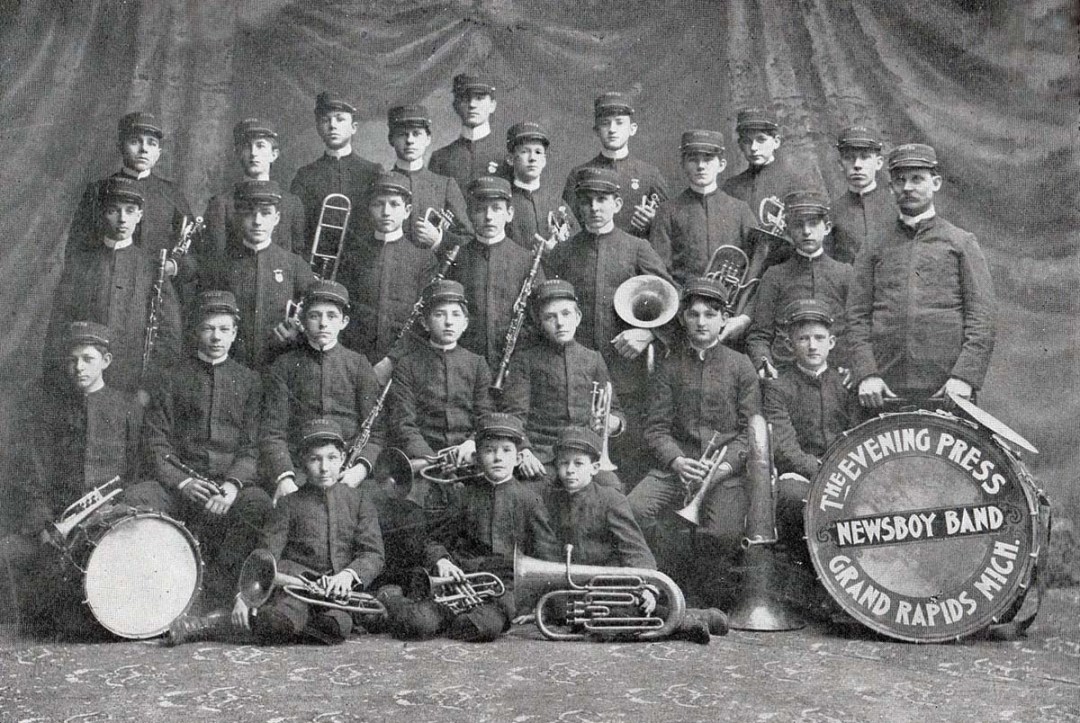
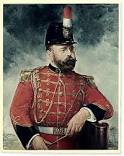
The same thing happened in the United States, particularly in the form of local town bands that played marches in parades after the Civil War. John Philipp Sousa (1854-1932), for example, made his career composing 137 marches and serving as Director of the US Marine Band and later his own professional band, the Sousa Band. One of his marches, The Stars and Stripes Forever (1896), was named the national march of the US in 1987.
Nationalistic music is often simplistic, with clear, obvious, and steady rhythms—things that can get a crowd of people clapping along, making them musically united as long as the music sounds. In music of this style, melodies are often clearly differentiated in the texture and are characteristically rousing, encouraging, or uplifting. The form of a Sousa march always concludes with a polyphonic texture [3:58 in the above video], allowing the composer to add depth and nuance of the idea he’s celebrating (i.e., America) by simultaneously layering different melodies on top of each other. On top of that, marches like these were played as part of larger patriotic displays, with flags waving, veterans marching, and stirring speeches—all things that resonated with and amplified the music’s message.
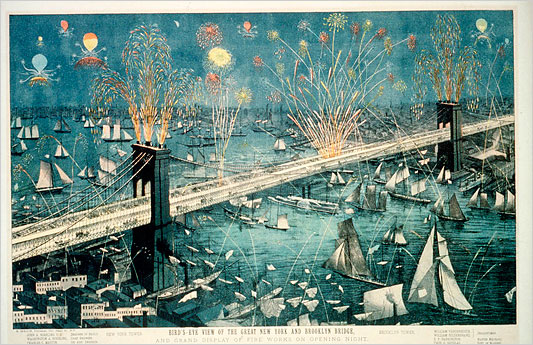
The last piece of nationalistic music I’ll leave you with is Toby Keith’s Courtesy of the Red, White, and Blue (2002), a song written during peak post-9/11 fervor that captures the ideologies of American protectionism, American exceptionalism, and anti-foreigner sentiment. It encapsulates everything we can expect from propaganda-music: it’s catchy and simple, it leaves no room for subtlety or nuance (“We’ll stick a boot in your ass / It’s the American way”), and it spreads a particular idea among a group for political purposes. The imagery of the video (gently billowing American flags, cowboy hats and cut-off sleeves of the southern working class, US soldiers in battle fatigues, and guns) reinforces the propagandistic message.
These are all examples of propaganda: music that conveys a political message, and this makes sense in wartime. In a time of crisis and stress on the population, anything that leaders or the military can do to build resolve and support for the long road ahead is a smart strategy. Music’s effectiveness as propaganda (i.e., manipulation towards political ends—the composer Christian Wolff (b. 1934) goes so far as to say that “All music is propaganda music.”) is based on the power of music to incite particular feelings and thoughts in your mind, especially when coupled with context, power, or a threat.
II. The human toll of war
The Crusades
Europeans have been fighting over the Middle East and fighting the people who live there for centuries. The Crusades were a series of wars fought by Europeans on behalf of the Catholic Church and the Western world for nearly two centuries (1095-1291). (There’s religion, last week’s topic, popping up again!)

These wars resulted in thousands of deaths, great tales and fables of bravery, the exchange of goods and ideas from East to West and vice-versa, and, of course, the capturing of prisoners. One such prisoner was the King of England, Richard I, aka Richard the Lionheart (1157-99). He was captured while returning home and held for ransom by Duke Leopold of Austria (1192-94). His traveling and captivity in the Crusades are part of the story of Robin Hood—his brother Prince John held the throne while Richard was away, overtaxing the people of England and generally being an inept ruler (with the help of the Sheriff of Nottingham).
It’s also part of the plot of the classic Katherine Hepburn and Peter O’Toole (and a young Anthony Hopkins) film, The Lion in Winter (1968).
But back to music!
While in captivity, Richard I wrote a song about his sorrow, resolve, and homesickness, “Ja nuls homs pris” (No man who is imprisoned).
No man in prison can tell his tale true
Lest he himself has known what I’ve been through
In writing song he may comfort renew
I’ve many friends but their gifts are few
They’ll bring dishonor for my ransom’s due
These two long winters pastMy noble barons and men surely knew
England and Normandy, Gascon and Poitou
Ne’re would I forsake or be untrue
To any friend; noble, commoner too.
I do not mean to reproach what they do,
Yet I remain held fast
World War II
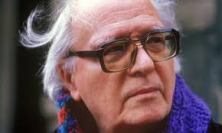
Olivier Messaien (1908-92) was a French composer trained at the Paris Conservatoire (remember Online Discussion #2?). When World War II broke out, he served in a medical unit in the French army but was captured in 1940 and sent to prisoner-of-war camp in Poland called Stalag VIII-A. One of his German guards recognized him and provided Messaien with everything he needed to continue to compose: sheet music, pencils, a piano, and instruments that could be played by the other professional musicians in the camp (clarinet, violin, and cello).
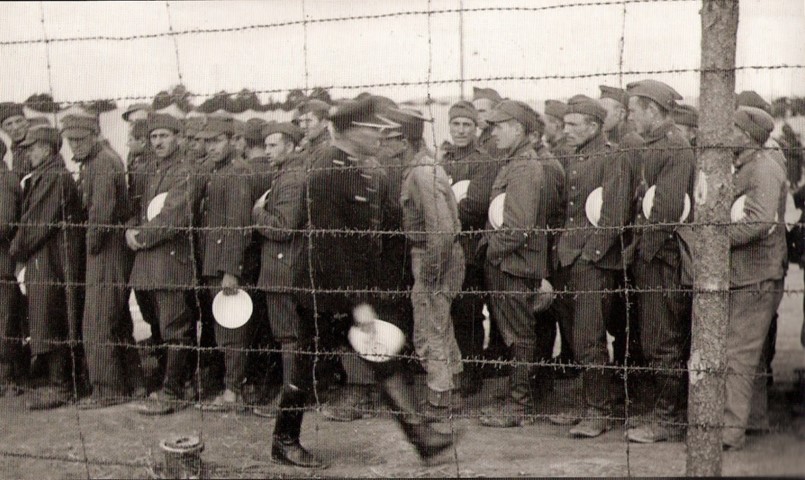
Messaien wrote a work that he called Quatour pour la fin du temps (Quartet for the End of Time)—an ominous and heavy title that reflects the feeling of the entire world coming to an end as much of France was destroyed by the German occupation, as winter settled on the camp, and as the prisoners couldn’t find out whether their families were still alive. Two important factors shape the sound of this piece: (1) the instrumentation, and (2) Messaien’s religious faith.
There were three other professional musicians imprisoned in the camp, a clarinetist, a violinist, and a cellist. The guards were able to procure instruments for all of them that were, by all accounts, terrible but playable. Messiaen’s quartet is special partly because no composer had ever previously combined these instruments—this piece is driven by the limited resources available to the composer.
In addition, Messaien took great comfort in his faith—he was Catholic—and his inspiration for the piece came from the Book of Revelation in the Bible that he experienced in a dream:
“And I saw another mighty angel come down from heaven, clothed with a cloud: and a rainbow was upon his head, and his face was as it were the sun, and his feet as pillars of fire…and he set his right foot upon the sea, and his left foot on the earth… And the angel which I saw stand upon the sea and upon the earth lifted up his hand to heaven, and sware by him that liveth for ever and ever… that there should be time no longer: But in the days of the voice of the seventh angel, when he shall begin to sound, the mystery of God should be finished.”
—Revelation 10:1-7, King James Version
Messaien regarded death and destruction on Earth not as a terrible end but as a hopeful beginning, the chance to begin eternal life in heaven. Here is the end of Quatour, in which you’ll hear very long notes in the violin reaching ever higher, on top of chords, two at a time, in the piano—the violin calm and graceful no matter what the piano does underneath, and the symbolism of ascending to heaven is pretty clear. The premiere, held outdoors in the middle of winter, was attended by the guards and inmates of the camp, who were already weary of the war and held in rapt attention for the entire work. Describing the experience later, Messaien said, “Never have I been heard with as much attention and understanding.”
World War II, continued

Polish composer Krysztof Penderecki (b. 1933) composed the next work without a title or inspiration in 1960, and only after he had written it and grasped how intense, emotional, and catastrophic the piece sounded did he give it a name: Threnody to the Victims of Hiroshima.
A threnody is a kind of song, hymn, or ode for someone who has died; it has a wailing quality and is often performed as a memorial. Hiroshima was the site of the first atomic bomb detonation in wartime, on August 6, 1945.
III. Music as protest: Giving voice to those not in power
Music played a large role in American anti-Vietnam War protests in the 1960s, expanding protesters’ message beyond just disagreement with a specific war to a broad, public polemic against all violence. Woodstock (August 15-18, 1969) was the capstone of ongoing protests by young, often white and middle class Americans against the use of violence generally, the Vietnam War specifically, and other ideas that they associated with “the establishment” (their parents’ and grandparents’ generation who were in charge of the social, political, and governmental structures that led the country into this morass in the first place) and all things the establishment stood for: the American Dream, being uptight or “square,” capitalism, anti-drug use, monogamy and heterosexuality, and—of course—anti-rock music.
The power of Woodstock and the music by rock and folk musicians who performed there lay in uniting a large group of people (400,000 attendees plus more who sympathized but couldn’t attend), articulating a message contrary to that espoused by people in traditional positions of power, and doing so in a way that was pleasant, persuasive, and enticing for a certain group: young people liked this kind of music and were drawn to it, whereas older Americans were not.
Performers included rock bands (Grateful Dead, Creedence Clearwater Revival, Janis Joplin, The Who, Jefferson Airplane, Joe Cocker, Crosby Stills Nash & Young), world music and fusion groups (Santana, Ravi Shankar, Sly & the Family Stone, Blood Sweat & Tears), and folk singers (Joan Baez, Arlo Guthrie).
Here’s Country Joe McDonald performing Vietnam Song which he wrote specifically for the festival:
Jimi Hendrix played the last set of the festival (approximately 130 minutes long), and his solo performance of The Star-Spangled Banner (the US national anthem) was particularly powerful because it was both an extraordinary display of his skill and creativity as a guitarist as well as a musical protest—it audibly and prominently distorted the melody and form of national anthem, and in the process re-purposed it from a bland, patriotic gesture into a personal claim: “There is room in America for me, for people like me, for my ideas, and for me to shape America into the country I want it to become.”
Coming on the heels of the Civil Rights movement (1919-68), the assassinations of Malcolm X (1965) and Martin Luther King, Jr. (1968), and in the middle of general dissatisfaction with the country, Hendrix’s performance made a powerful statement.
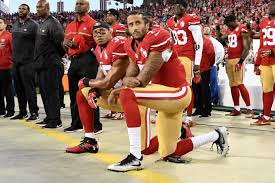
US football player Colin Kaepernick’s protest of the national anthem during the fall 2016 NFL season can be seen in the same context. As a racial minority in the US, Kaepernick listened to the anthem, saw the display of celebration and pride that it encompassed, and found those to be in dissonance with his experience as an American and the experience of other Americans. Rather than stand during the playing of the anthem at San Francisco 49ers games, he took a knee on the sideline, causing uproar for viewers who took his gesture to be a direct affront and insult to members of the military. The fact that his gesture could be interpreted so differently speaks to the powerful place that the anthem occupies in people’s imaginations and how strongly they associate the musical sounds with political ideas.
Kaepernick’s gesture also encouraged a broader re-examination of the Banner itself, which was written by Francis Scott Key following the Battle of Fort McHenry in Baltimore during the War of 1812. (It became the US national anthem in 1931.) The song has four verses, but we typically only sing the first in public events today. The third verse, which celebrates the deaths of slaves who were promised freedom by the British if they defected to the Royal ships in the harbor but were killed by American fusillade, makes the song problematic.
No refuge could save the hireling and slave
From the terror of flight or the gloom of the grave,
And the star-spangled banner in triumph doth wave
O’er the land of the free and the home of the brave.
Because the national anthem is a powerful symbol of the nation it represents, a person who questions it or seems to lack complete faith in that symbol can be interpreted as disrespectful, not just of the song but of the nation itself. This conflation is an example of false logic, obviously, but also the fact that such a reaction is possible shows just how effective the song is as a piece of propaganda. Kaepernick’s career seems to be over as a result of his protest, further underscoring the weight people ascribe to the anthem as a patriotic symbol.
IV. Music as war
Armies have been using music in battle as long as there have been battles. Drums keep armies in step, trumpet fanfares signal which units should advance, and the enemy can hear music of an approaching army long before they see them—allowing fear to set in if the approaching army sounds big and powerful.
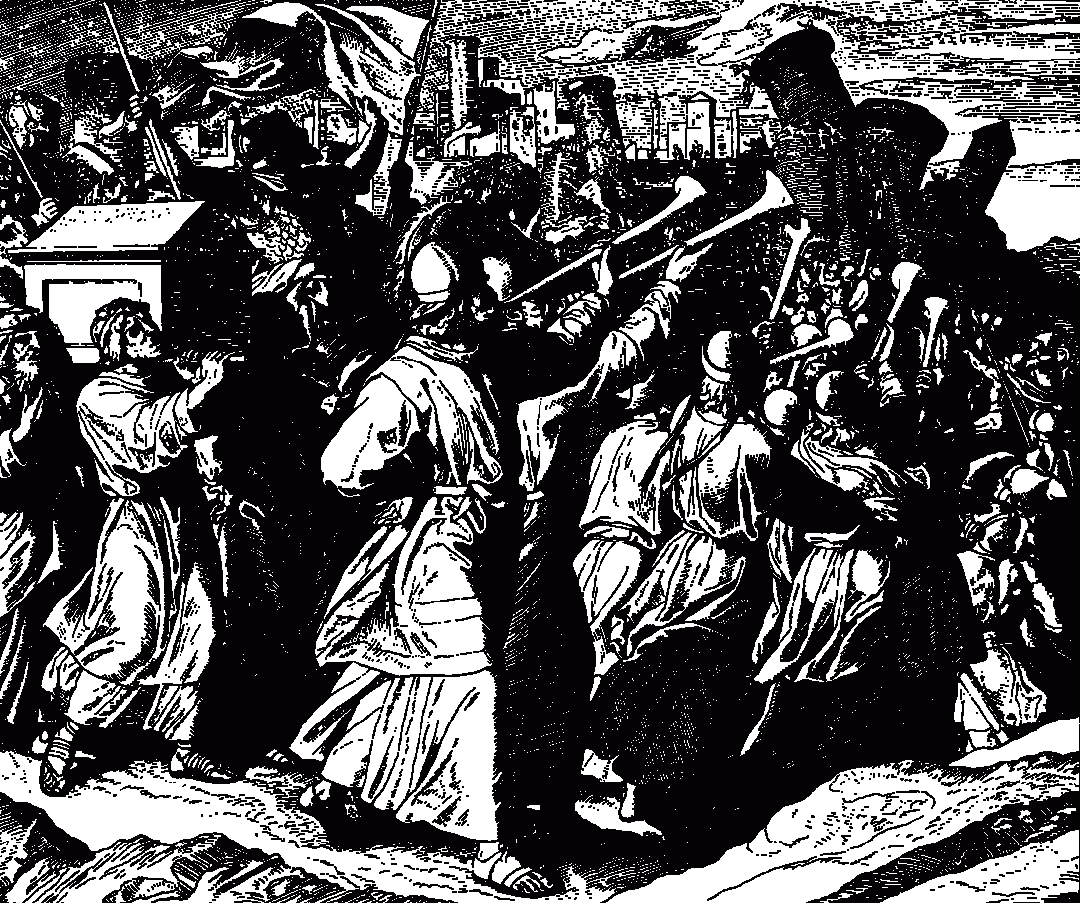
During the Ottoman-Habsburg Wars (1526-1791), Turkish armies made use of psychological warfare by having their Janissary bands perform outside the walls of a city under siege, psyching up their own troops and intimidating the citizens trapped inside. For Europeans, the Turks’ use of percussion (especially metallic percussion) and nasal-sounding wind instruments would have been frightening because of its unfamiliarity, and large, coordinated ensembles of musicians can have an intimidating effect.
Music as psychological warfare continues today, and Jonathan Pieslak’s book Sound Targets: American Soldiers and Music in the Iraq War (2009) explores how American troops and interrogators typically use heavy metal and rap to pump themselves up for battle and to rattle prisoners during interrogations. Alex Ross’s excellent article “When Music is Violence” in The New Yorker (2016) summarizes Pieslak’s book and other instances of music being used to inflict harm on others: Ross – When Music Is Violence – The New Yorker I strongly recommend you read this essay, as it is an excellent piece of writing and shows how broadly you can approach the idea of listening to music, something you’re going to be thinking about for your own upcoming Student Blog Post.
Final thoughts
It’s difficult to talk about war without also thinking about censorship, the control of the spread of ideas. Music is a powerful means of conveying messages, and the potential flip side of this power is the rejection of that message (and the messenger/musician) in the form of boycotts, commercial failure, and censorship.
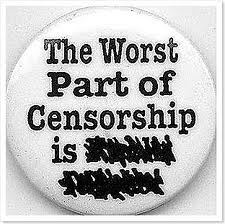 Art is a way to express ourselves at our best, or at our most profound, or ourselves in our best image. And it’s a way for us as listeners to explore, empathize with, and experience other people’s lives and perspectives. The arts and literature are among the first targets of tyranny and censorship because they open people’s eyes – to different ways of life, to different perspectives, to alternative realities. We humans are by nature inquisitive creatures, and when confronted with something new, we ask ourselves how it could exist, what has caused it to come into being. We imagine what sort of person might have come up with a piece of art, what kind of world a person who writes a certain song could live in. And if we start imagining other people and other perspectives, we might be tempted to change our own, and that is the wonderful danger of art.
Art is a way to express ourselves at our best, or at our most profound, or ourselves in our best image. And it’s a way for us as listeners to explore, empathize with, and experience other people’s lives and perspectives. The arts and literature are among the first targets of tyranny and censorship because they open people’s eyes – to different ways of life, to different perspectives, to alternative realities. We humans are by nature inquisitive creatures, and when confronted with something new, we ask ourselves how it could exist, what has caused it to come into being. We imagine what sort of person might have come up with a piece of art, what kind of world a person who writes a certain song could live in. And if we start imagining other people and other perspectives, we might be tempted to change our own, and that is the wonderful danger of art.
-Dr. J.
Some questions to get the conversation started
- What human experience do you think music is unable to capture or portray?
- If you were a musician captured in war, what kind of music would you be inspired to create?
- What aspect of Ross’s essay did you find to be the most interesting?
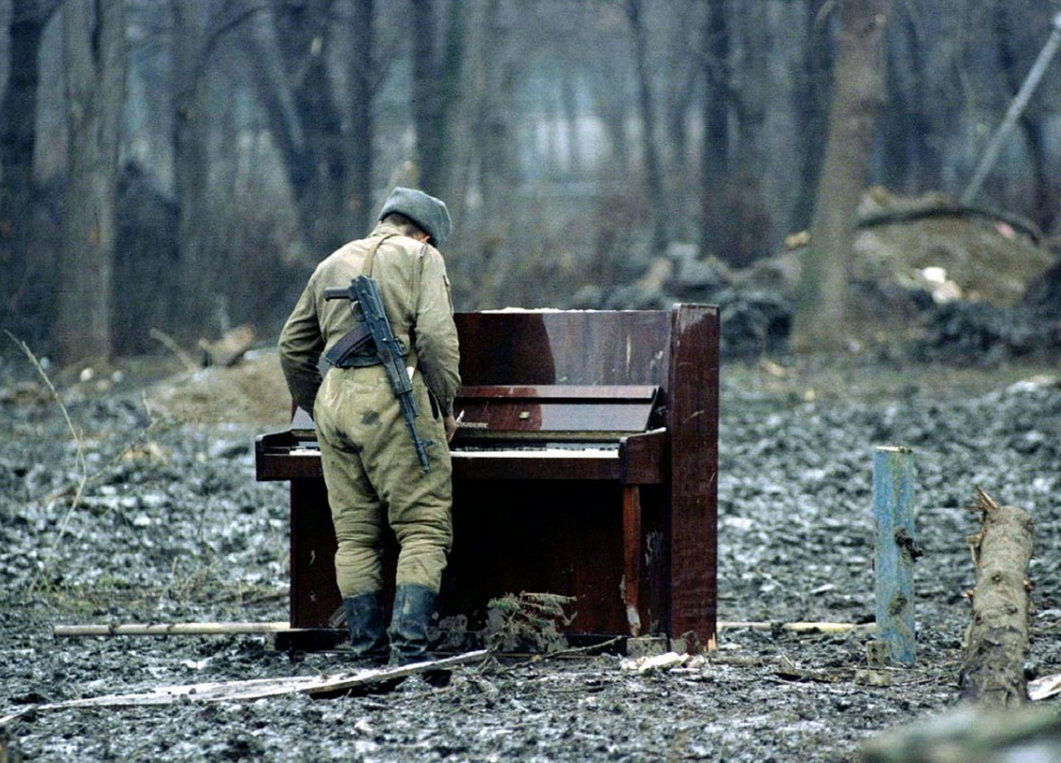


About the Discussion #3:
I was doing it 30 minutes before the deadline. I came in from work very late and had to settle down. I had clicked on the discussion, skimmed through, and got a good sense of what was being talked about. I was ready to submit at 12:55 PM, when it told me to log in. I did so, then it brought me to a “re-log” page or something like that. So I go back, and my typed out response is gone. I had to re-type what I said, in addition to do my response and give a question. I apologize for going passed 12, but I do hope you can forgive me and maybe let this slide? I can assure you this will NOT happen again.
Sincerely, King Bercy
On Tue, Sep 19, 2017 at 12:02 AM, Dr. Jones’ Music Classes wrote:
> drjonesmusic posted: “The rubric I’ll be using to grade your participation > is available here. The most effective comments in this kind of forum are > concise, clear, and supported. Instead of responding to every conversation > question in one comment, try to make shorter, separate” >
LikeLiked by 1 person
If i were a musican captured in war , i would make very dark ambient , menacing , scary music as to show my mood of the whole situation , i wouldnt want to be at war in the first place
LikeLiked by 3 people
I get what you mean about wanting to express how you feel, and that you will be frustrated and don’t want to be where you are. For me, I would peaceful music, music to bring me hope and help my mind explore and imagine of better things than my circumstances because they will be bad enough and I could use some hope and inspiration.
LikeLike
If I was a prisoner of war I’d write music about back home and how great we really have it here in America. I wrote a paper for a history class about the Vietnam war and found a quote from a POW that said “There is no such thing as a bad day when you have a doorknob on the inside of a door.” I’d also probably write some songs about how powerful our military really is and have faith that they’ll eventually get me out of the current situation I’m in.
LikeLike
I agree with you. Shows our weakness can’t help us to win the war. On the opposite, a strong faith will lead us success.
LikeLike
Those are the songs that give hope to the soldiers. To have hope for tomorrow and have a smile.
LikeLike
Same here. I’d probably make the most depressing piece of music possible. Using the song to place blame on who ever forced me to go to war (because that’s the only way i’m fighting.) while also using the song to give the finger to whoever captured me.
LikeLiked by 1 person
I saw a lot people mention about ambient music. So how do you guys think ambient music can help the person to pass through the darkest life in jail?
LikeLike
I definitely agree, I think I definitely would be making dark, sort of sad music. It’s not because that’s what I would personally want to make, but just imagine being captured at war, that’s definitely not something to be happy about. I feel like making music definitely comes a lot from what you’ve experienced. I agree with not wanting to be at war in the first place, so my overall mood would be pretty gloomy.
LikeLike
But couldn’t you want to give hope to your soldier mates? Make them smile and remember of home and how they will soon be with their love once, once again. What do you think is better to do, fell sad that you are where you are or hope for a better tomorrow and give hope to the people around you?
LikeLike
In my mind I was thinking the same thing. Something dark would capture my mood of the situation so I would create something that people herd and felt my pain of being captured at war. Each sound would reflex my experiences.
LikeLike
if i was a musician at war i would create music that uplifts my spirit even tho I’m really scared in the inside
LikeLike
how do you guys feel about ambient music
LikeLiked by 1 person
I don’t listen to ambient music a lot. But when I do Its when Im studying. It creates a space of focus and clears my head. Songs I usually listen to can’t do that because it makes me sing with them and makes me lose my focus.
LikeLiked by 2 people
Quick question. What’s ambient music?
LikeLike
According to google its ‘gentle instrumental music” the best example i can think of is when people listen to rain forest sounds to try and sleep.
LikeLiked by 1 person
Thanks 👍🏻
LikeLike
It a style of music,mostly instrumental with no beat that enhances a certain type of mood/environment.
LikeLiked by 1 person
I think ambient music is so sweet and calm. Honestly, i really like it. I don’t listen to it anymore but i used to when i was a child. I remember visiting my grandmother and she would always have it playing and that’s how i was introduced to ambient music.
LikeLike
I think ambient music is a great genre to listen to when you need to just clear your head, or calm down. Sometimes listening to it can help you zone out and away from whatever’s going on… something like a “Flow” moment. I listen to it when i just want a calm vibe around me.
LikeLiked by 1 person
Would you consider slow jazz as calm too?
LikeLike
I like to listen to ambient music at night because it helps relax my mind and it also helps me go to sleep earlier unlike listening to upbeat music which makes me be up really late.
LikeLiked by 1 person
What type of ambient music is your favorite?
LikeLiked by 1 person
I usually listen to “Bella’s Lullaby” by Carter Burwel which is relaxing ambient music to me
LikeLike
Oh nice. I love listening to rainforest and ocean sounds. They’re so soothing to me!
LikeLiked by 1 person
If I were a Musician captured in war, I would make music thats inspires memories of home. In war most soldiers are fighting for something back home or even to get home. I would make music that rekindles their memories of what they are fighting for. This can be a great morale booster as well.
LikeLiked by 2 people
what are some things that remind you of home ? What kinds of things would you include in your song to get the message across?
LikeLike
Music is an indispensable part of the war, and it is an indelible part of the soldier’s life. Even the instruments used to play music in the war have gained great symbolic significance. In ancient times, people use the battle drum, trumpet to cheer warrior up and courage them win the fight before the war. There are also many songs made during the war, mostly about protecting the homeland, miss the family, the love of their own country.
The soldiers will sing or play those songs during the war, make them have more faith to survive to win the war.
If I were a Musician that have to surrender to another country, I will refuse to do that. In the jail, I will write more song to praise my own country, criticize the misfortunes from the war, and desire for peace.
LikeLiked by 1 person
I agree with your text that ancient time, people use drum and trumpet for battle. When I listened the “Ottoman-Habsburg Wars” at above, Turkey’s army used percussion and nasal sounds instruments. They used it as psychological warfare.
LikeLike
That’s a good point. Do you think they have music for all kinds of events that happen during a war? From victory, defeat, death. I don’t think there’s music while a live battle is happening though because everyone’s busy resolving their issues.
LikeLike
They have all kinds of music. Music is used to revive soldiers, get moral from the people, to encourage, send messages, to support people who are in war while being faced who death and sometimes very discouraging and unimaginable situations. Its also used to try and have some laughter in the face of grim circumstances
LikeLiked by 1 person
If I were a musician who trapped by the enemy, I’ll create the music that has a strong beat and vivid melody to show my perseverance. Even though I am a P.O.W., I still love my country and i will fight for it until the last second. No matter how dark my life is, justice will brings light and hope. The music should convey these determinations to others to encourage them fight for our country.
LikeLiked by 1 person
I agree with how you said you would use a strong beat, a vivid melody and how you would fight for your country until the last second. And I agree because using a strong beat instead of a softer one really helps with the showing of you being successful
LikeLike
Music and the military definitely go hand and hand. I was in the navy and remember us chanting songs as we marched which made us feel tough and unstoppable. Also, after our last evaluation in boot camp, they had us stand in ranks while they played “God Bless The USA” while showing a video and everybody was so proud and emotional.
LikeLiked by 2 people
Has anyone served in any other branch of the military? If so, what cadences would they sing or would play to get you guys pumped up?
LikeLiked by 1 person
i would mostly like be the one playing music and getting everyone and including me of course for war (battle)
LikeLike
What kind of music did you guys play?
LikeLike
I heard about they have something called “Music Therapy” for military veterans. I think this program is to help them reduce stress and gives them a peace of mind.
LikeLiked by 1 person
I really love the idea of musical therapy. I think that would be a great program specially to veterans and people who suffered through that time. It would be a great place for them to connect and give them a piece of mind like you said.
LikeLiked by 2 people
My cousin was in the Army and to be honest most of those guys would jam to old school hip-hop.
LikeLiked by 1 person
I dont think theres a human emotion music can’t capture. As long as there are words to describe what an individual is feelings someone somewhere will be able to create a piece of music to convey those feelings.
LikeLiked by 1 person
Why do you think we get so emotional when we listen to music? Like how does it convey feelings?
LikeLike
Soliders that served for America and went to war (battle) against other countries would end up getting captured. If i were to get captured by the enemy i would be finding a way out from the campo or cell i would be held. Singing, would help me get my thoughts together for my plan to escape i would also help others escape as well. Music is very powerful in war some would sing because they are afraid or try to prepare for battle. Some, artist use war crimes in there songs and use instruments to be used as bombs or gun fire.
LikeLike
If I was a musician captured in war, I would create music which gives people motivation, strength and the power to get through the most difficult tasks. I believe that music has the ability to boost up our motivation very strongly. It can energize and increase our endurance.I think creating these kinds of music will help the soldiers to overcome the harsh reality of wars and it will give them strength to even win the war.
LikeLiked by 3 people
I believe that the music can give us energy, endurance, so on like you. Aftermath, victims of war will get trauma. Do you think music therapy can help cure their PSD (post traumatic stress disorder?
LikeLiked by 1 person
It does not fully cure PSD ( post traumatic stress disorder) but it calms the sick because a song might make them remember a relaxing moment in their life.
LikeLiked by 1 person
Totally agree, music spiritual values not only for the singer but also for all the people who listen to it. Music enriches our spirit, gives us the power to live through the darkest difficult time.
LikeLiked by 1 person
If i was captured in war, I would make a mixture of happiness and terrifying sounds throughout the song. The happy melodies identifying the hopes of getting out of war fast, thinking of my family back home and happy memories stored in my mind to help me through this difficult time. The terrifying tones of the song would identify the horror i’d be experiencing at war. The deaths, the sounds, the dark sky.
LikeLike
I agree with you because your environment and inner feelings plays a major role in what you contribute. These particular confines can alternate and change your way of thinking drastically. It depends on how strong you are and can tolerate mentally, the reality of being captivated.
LikeLike
Have you ever had a family member go to war?
LikeLike
If I were a musician captured in war, I would be inspired from music with giving hope and comfort, such as depend on God. The war, just hearing, it is fear. Furthermore, if I were captured to enemy, I would try to keep my hope. Also, I would try to give encourage by the music to the other prisoners of war. When I listened above the some music, such as, Messaien. The reason is because we are human. Human is weak, and the God is for the weak people like the extremely situation. Therefore, I would be inspired from music with giving hope and comfort like depend on God.
LikeLike
If I were chained down, or isolated in the confines of imprisonment, I would be inspired to create music based on my life story. By this I mean in terms of portraying how I been captivated , and my experiences throughout my time. I would create triumphant music based on my emotions , as well as more sad and sympathetic music as well. An example I believe would correlate to this as well, would be one of my favorite artists named Tupac , and his song, “All Eyes On Me .” This particular song contributed to the thug lifestyle in which he had been accustomed to based his rough environment. This was released after Death Row label CEO Suge Knight bailed Tupac out of jail as a part of Tupac’s contract to sign with Death Row Records. The reason I brought this into comparison is because I would want a journal to write in about the way I had been treated, and how much I miss the outside world entirely. I believe this would change my mentality substantially , and cause me to think differently. I would request instruments and form a group with other inmates in order to keep me going and uplift the other inmates as well. I would have music similar to the medieval times and ages. Also I would create music similar to Beethoven’s Piano Sonatas. It would be dreary and inspirational to some viewers as well. I would show the realism of those dark times.
LikeLiked by 1 person
I don’t think there is any human emotion that music cannot capture today. From times of war, liberation struggles, nationalism, different movements, protests,, religion, hopefulness, and all different emotions from sorrow through to happiness, music can capture it all.
LikeLiked by 1 person
I agree that music can capture any emotion felt by mankind. I think what it can’t capture entirely are human experiences where there’s trauma involved for example. The way events occur for us can be in incomprehensible ways sometimes but music seems to only capture the most common turns of events. Songs can only detail a fragment of a story idea. I also think with the right tone and melody anybody can feel temporary relief from everything going on even trauma but it’s always temporary.
LikeLike
Do you believe that music can always capture reality throughout its lyrics or what the artist wants you to believe or from his/her perspective. And if so do you believe that its ambiguous to the listener, or straight-forward.
LikeLike
Personally, I don’t think there’s any human experience that music is unable to portray. I think that for the longest time, people have always made music about their experiences or what they’re going through. In my opinion that’s how music is created, from what you’ve gone through. Even back then, during the time of Mozart you heard how his music changed when he was going through rough times. It sounded more depressing. In modern times, people still make music about everything, from finding love, breakups, to family, school, work and in general just life experiences.
LikeLike
I think being captured in war is more serious then it sounds because you’re restricted to technology I’m assuming and making music would be much harder. It wouldn’t be impossible but it would be way harder and I think I would just wait and sleep till the war is over and I’m released to make music because it would speak loudest. You’d have to have a great amount of creativity to be able to compose something while in a 2×4 enclosed cemented wall cell.
LikeLike
Do you think you have to be creative enough to make a normal music? Why do you think music needs creativity?
LikeLike
You do not need technology to create music. Technology didn’t always exist but music part of our history and has existed for a long time. Music can be created at any point and time.
LikeLike
If I was a musician captured in war I would probably make positive music. I saw some people who answered this question say that they’d make sad or gloomy music, but I wouldn’t. No matter what situation I’m in I try to stay as optimistic as possible. So knowing I went to fight for my country and I got captured I’d create songs about defeating the enemy or being rescued soon.
LikeLiked by 1 person
Does anyone think that if they were captured as a prisoner of war, that they would be able to create any type of music while they’re captured?
LikeLiked by 2 people
i don’t know if i would write music because of a lack of an instrument but i think it would cause me to be more artistic. But instead of music i think i would be more drawn to writing poetry or about the experience.
LikeLike
Have you ever read poetry that relates to war?
LikeLike
Woah so I just listened to Penderecki: Threnody for the Victims of Hiroshima and It literally gave me the chills. I find threnodies to be eerie and not very appropriate for a memorial. Kinda sounds like a horror movie. I looked up threnody and i learned that they encompass all genres so to me that says that not all sound the same because they are an expression of someone mourning the dead. I also looked up other examples and a lot of horror music came up. I don’t know why but that piece of music really stuck out to me and i guess that was his intention in composing it, Hiroshima was scary and it should be heard as horror music.Weird perspective but I thought that this was cool.
LikeLiked by 2 people
Do you guys think that when in times of war or some type of peril, people become more artistic?
LikeLike
Things like peril can be inspiring, but personally I struggle to write unless I have a clear head and calm understanding of my thoughts. Being in a war-zone can lead to great inspiration back home, but it can be hard to think clearly when there is so much going on around you.
LikeLike
A human experience that I think music is unable to capture or portray is, well I think that music can capture all the human experience but it may not capture the feelings of that experience, except if the one that writes the piece of music is the one that had the experience and yet not everyone will get the same feeling. Also sometimes people can have a similar experience but have different feelings. In my opinion, music can capture human experience but not the feelings of that experience.
If I was a musician captured in war, the kind of music that I could be inspired to create could be hopeful for a better tomorrow. It could have stories of the once that have fallen, it could be supporting and also it could be proudful.
LikeLike
I completely agree with what you’ve said. I think music can capture people’s feelings. However, I think it is nearly impossible to capture how people really truly feel. I think that some feelings there’s no way to truly show it. Sometimes words are the best way to express it. Although music can express how we feel, but you really can’t see how much a person truly loves you unless they verbally express it.
LikeLike
If I was a musician captured in war the song that I would compose would most likely be made of very depressing and horror music because no one wants to be captured in war especially if they were not okay with going. Being in a war zone can be very scary and harsh and your life could be taken away at any given second. This can also cause you to over think and become traumatized because you’re surrounded by people dying and endless amounts of loud gun shots. Even if you are fighting for your country it’s still very scary to be involved in a war zone.
LikeLike
A human experience that can not be portrayed by music is white privilege. Only because of the sensitivity of that issue. Not everyone wants to acknowledge that white privilege is real or it does not exist, however those who support it stand with black lives matter to fight for equality. If I was a musician captured in war, I would make inspirational music. I would want myself to have hope and to think positive. It would be kind of Metallica’s “One”, because that song has a mellow beat at first with smooth lyrics/tone coming from the musician. One thing I found interesting about the essay from Alex Ross is how the C.I.A used “enhanced interrogation” which was heavy metal blasted during torture regimes.
LikeLike
Do you think music can truly express every emotion we go true in life?
LikeLike
If I was a musician trapped in the middle of a war, I think the music i would create would have to be motivating and inspirational music. The reason I would create music as such is because I think being in a war is something very difficult. Also, I am the type of person that needs uplifting music during difficult times. It is like a breath of fresh air. It would allow me to have faith and believe a time as such will come to an end. We all look forward to a light and positive music would be that positive light in my eyes. One of my favorite sayings is “Put positive things in the air, and positive things will happen”- Unknown.
LikeLiked by 2 people
If you were captured in a war zone do you think that you would even get the chance to compose a song about your experience?
LikeLiked by 1 person
Honestly if I were a musician captured and more I have no idea what music I would be inspired to create. Being captured at war would probably bring so many different types of emotions out of me. I would create very drastic and dark in music like everyone has been saying or like very upbeat and lively music. I would want to create music out of my comfort zone as well things to occupy my mind and inspire me more and give me hope.
LikeLike
I don’t think there is any human experience that music isn’t able to portray. Every artist writes a song using lyrics that have a meaning. Aside from using words the melody alone shows the tone of the song. Music can have a bunch of different meanings depending on how someone is feeling or how certain things are interpreted
If I were a musician trapped in a war I would be creating music that was very low, almost silent and deep not high pitched. Because war is such a dark place to be and most likely everyone around you isn’t themselves. People are upset and not all there mentally. While being at war there is nothing to enjoy.
LikeLike
I like you comments, even though I have a different perspective view from you.
it’s kind of hard to judge music, there is no limits in it, no matter peaceful or sadness.
the most important part is we use music as a way to express our feelings, use instrument to play our imagination.
LikeLike
I would not be the basic person to composed inspirational or hopeful pieces if captured at war time. I would be ordinary and different because I would compose joyful and happy songs. The reason is that death is inevitable. In war I would encountered multiple killings and sadness if captured. So my purposed is to make it fun for everyone even if t they are suffering by not knowing if they would be saved. In addition, you get a vibe of happiness even if its for a little. You would feel ad see the change when everyone is sad but only one person has some happiness even at harsh time.
LikeLiked by 1 person
What if there was a big speaker that can be heard from miles and blood rushing music is being played would it affect the the fighting skills of the soldiers?
LikeLike
what will happen if those who composed and play were unable to get any source to making music?
LikeLike
First I want to say to see Hendrix and Colin Kapernick in this discussion is so amazing only because I feel like I resonate with the culture that they represent. Not only the culture but the stance of what people would say “rebellion” is something I agree with if you standing by your stance. Especially in Colin Kaepernick position who tried to bring awareness to somethind to bring upon unity and now being blackmailed by the owners of the NFL and can’t get a job because of his stance. If you don’t know the story I encourage you to read up on Kapernick story.
LikeLike
Now if I was a musician captured in war my music would be gritty and very transparent where you can visualize the words I’m saying. It would have dark messages because I’m at we captured with my life on the line so yes my music creation would be impactful and very insightful on why nobody would dream to be in that position. Also I would probably compare being home to being in war and make that parallel of how much I’m upset to be in the position that I am in.
LikeLike
Benjamin Franklin has ever said ” there never was a good war, or bad peace”.
I saw a lot of films and books about wars.
To me, I feel the war is so cruel that can reflect humanity itself clearly. No limits Desire, aggression, horrible ambition… which the most hiding parts inside each human being are show entirely during the war. I don’t like it. Enough though I know exactly those characteristics everyone has in born. I’d rather hide those inside deepest forever.
The war is so cruel, everyone can feel it no matter victims or enemies, even though now we can still have the feeling when we see some references or pictures related it.
So if I were a musician captured in war, I’d like to write some soft, light, peaceful songs which can remind the beautiful place inside our heart, the part can make the world better. I feel in that particular period, softness and gentle songs are more powerful than horrifying pieces.
LikeLiked by 1 person
Honestly feel that music can capture all human experiences because music as an art form is an experience in itself. Music come from us the people so yeah I feel we can create the reality in which we live in with all forms of experiences. For example NWA rap group who are products of their environment vividly showed images through words of experiences they lived through. No matter the human experience I feel any artist can translate it through music for sure. It takes a brave artist to talk on certain subjects matters but across the board no experience is off limits in music so I feel that all human experiences can be potrayed through music. Another example is “Crossroads” by Bone Thugs N Harmony. Each experience can be depicted.
LikeLiked by 2 people
I agree with you totally on how music can capture all human experiences but of musics form and its just art itself. Many feeling and thought could arise on just one piece of music that people can listen too.
LikeLike
It’s my opinion that there is no single emotion or experience that music is unable to portray. I think the reason for this is that music (like all art) is an actual “physical” representation or extension of these things. Like emotions and experiences brought to life from inside us to the outside world. If I were a musician captured in war I think I’d probably create happy music to remind myself of better times. This is because I’m the type of person that would rather ignore my hardships vs put focus on them. What I found most interesting about Ross’s essay was how he talked about music being used to unify, control and even scare people. Music isn’t just something that is listened to for recreational purposes and enjoyment, it’s something that can be used like a tool or weapon. I think this is something I’ve always known instinctively but never really thought about until I read it in his essay.
LikeLike
do you guys know some music which created during the second world war?
LikeLike
Probably swing music since it was very popular back then
LikeLike
Concerning what experiences music can not capture, I personally feel music can only capture and portray our most basic of experiences. Music captures sadness, anger, joy, jealousy, fear. What we absorb from music generally stems from personal values and understanding. Can music truly encompass the complexities of war, death, mental disease or is the listener only gathering importance from their own internal conflict?
LikeLike
Last comment sorry but I was really reading a lot but something about Ross essay that I foun intriguing was his onversation about pop music and how the consumers support it no matter the message it’s glorifying such as an Eminem record. Also the comparison of those messages in a war form throughout that paragraph was very interesting.
LikeLike
I feel like music can capture any kind of experiences that a person is going through or any kind of group. Music flows through the body and hits people in various types of ways. Capturing happy, sad, confused, and etc. moments are really captured through music in anyones everyday lives. They listen to different types of genres on different moods or depending on the days too. Music can capture a million different types of thoughts of feelings but ut can expressed in prpoganda as mentioned in the articles and the videos above.
LikeLiked by 1 person
Not that i would ever want to be a musician in war but if i had to i would create lively music. For me personally i need music to get me going and really focus on what im doing. but then again lets look at all the deaths i would be witnessing i would need to move more to something soft and heartfelt.
LikeLike
If iwas a musician at the time of war and i would be composing music, thenit wouldn’t be happy or optimistic. War is not a fun sight, its traumatic and the piece of music would be very soft and sad for the lost ones in the battles. Or it could be about being imprisoned, but the point is that i would compose soft soothing music.
LikeLike
Im hearing a lot about ambient music. What kind of genre is that?
LikeLike
I honestly don’t think that there is any kind of human experience that music can’t capture or is unable to capture/portray. Being who I am today in the senses of confidence, struggle, sadness, and basically anything that I feel has music contributed in it. I have music there in my life as an guidance, friend, help in any kinds of way.
LikeLike
Music has done a magnificent job in capturing many human experiences, from misery to love and enlightenment etc. I’m not sure if there is human experiences music has yet cover, i think we’ve done it all and even though with time our musical ideas change we still manage to capture our emotions in whatever genre we choose.
LikeLike
One thing i found interesting is that the C.I.A. uses music to interrogate people. i didnt think these people knew anything of the outside world meaning anything besides work.
LikeLike
If I where captured at war I would make a song dedicated to the fallen soldiers and other people who where captured with me. Reason for that being said is because we cannot forget about those who died instead of the one who survived, but my song will be slow and sad so the listener can feel what I’m saying without any confusion. And for the simple fact of the topic is sad it must match the beat.
LikeLike
Also, they have a bunch of therapies including music which means it helps people come over the problems they face in life, which again contributes to another human experience and a very important because of the harsh environment/world that we live in.
LikeLike
What human experience do you think music is unable to capture or portray? I believe that there is a piece of music to capture every human experience. youtube and other music sites are large and have a huge range of music to choose from. depending on your mood over even the day there is a song for you. maybe on monday you want a slow beat but by friday your ready to party so you want upbeat music.
LikeLike
If there was something music can’t capture or portray is simply our own unique experiences with everyday life, it changes so much and things happen around us so quickly that it’s seemingly impossible to imagine music being able to portray anyone’s life from beginning in to the end.
LikeLike
What’s the point of even trying to give people a sense of what war can be like with music, is there a specific message that’s supposed to be delivered or does it all mean something else?
LikeLike
If I was captured in war, I would make music that would give me the strength and hope to come over my problems or atleast make me feel that its not the end and there is more to live for. I would also make music that makes me feel that dying for such an cause is worth it so that the future generation and the kids of the future are safer and will see better things in the future unless like us. I would also make music that helps us and other people appreciate the veterans during the war because they are the ones that are giving us that little light of hope
LikeLike